


编辑:LY-Temple 日期:2014-11-22 15:10
On November 19, 2014, the 17th Meeting of China-South Korea-Japan Friendly Exchanges of Buddhism was held in Seoul, South Korea. The executive director of the Buddhist Association of China, Chairman of the Buddhist Association of Hangzhou and Abbot of Lingyin Temple Venerable Master Guangquan and China’s Buddhist delegation led by the Vice-chairman of the Buddhist Association of China Venerable Master Xuecheng attended the meeting and the World Peace Prayer Ceremony. Venerable Master Guangquan delivered a speech at the meeting.
The theme of the trilateral friendly exchanges of Buddhism is the peaceful application of Buddhist thoughts. At the meeting session in the morning, Venerable Master Guangquan delivered a speech entitled "Buddhism as a Major Force in the Preservation of World Peace". He reviewed the history of cultural exchanges of Buddhism between Hangzhou, South Korea and Japan and the resulting great impact on the trilateral relations. He pointed out that with the political instability in Northeast Asia, Buddhism, as an important component of the Northeast Asia, has a profound significance in the communication and partnership between different countries, regions and ethnic groups. He then further elaborated on the positive role of Buddhism in the preservation of world peace.
Firstly, benevolence and equality are the basis of the preservation of world peace. To promote mutual prosperity and enduring peace, it is key to uphold democratic equality, to seek common ground while reserving differences, to honor life and peaceful coexistence.
Secondly, perfect penetration without obstruction is a way to preserve world peace. With a mind of interfusion rather than obstruction, nations and ethnic groups can seek common ground while reserving differences, embrace openness and inclusiveness, and expand their common ground while reserving their unique distinctiveness.
Lastly, a purified mind is the key to the preservation of world peace. As the Vimalakirti Nirdesa Sutra (Wei Mo Jie Jing) states, "As when the mind is pure, the lands are pure."
Venerable Master Guangquan considered that the frequent communications and exchanges of Buddhism among China, South Korea and Japan in recent years have promoted mutual understanding of these countries and the peace and development of Northeast Asian countries and the world. The Buddhist communities in these three countries should unite together and promote the Buddhist fundamental ideas, such as the Four Bodhisattva Virtues , the Six Perfections (Paramitas) and the Four Immeasurables, so as to contribute to the world peace and development with the help of the Buddhist spirit of benevolence, equality and perfect penetration without obstruction.
In the afternoon, Venerable Master Guangquan attended the World Peace Prayer Ceremony together with the participants from other countries to pray for world peace and people’s well-being.
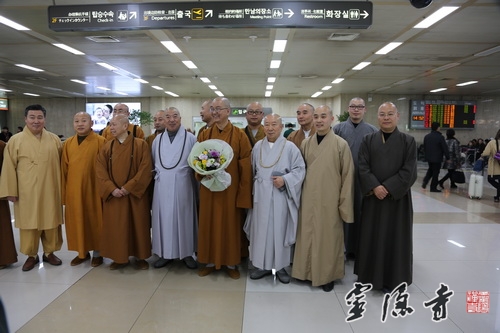
China’s Buddhist delegation arriving in Seoul, South Korea
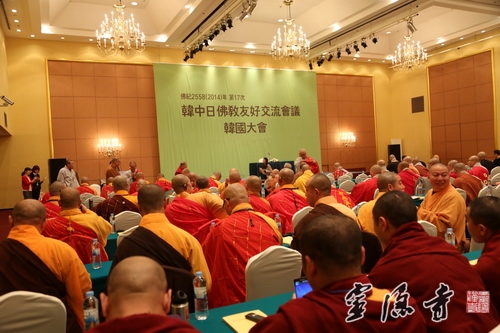
A scene of the 17th Meeting of China-South Korea-Japan Friendly Exchanges of Buddhism
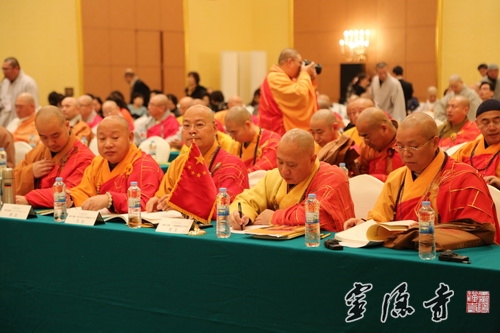
Venerable Abbot Guangquan at the meeting (the third from right in the front row)
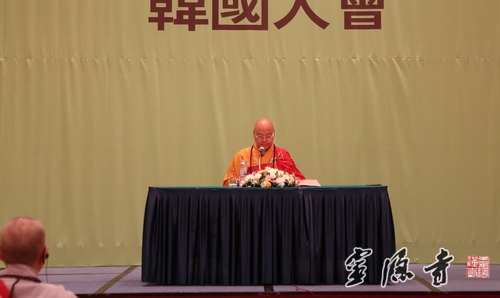
Venerable Abbot Guangquan delivering a speech at the meeting
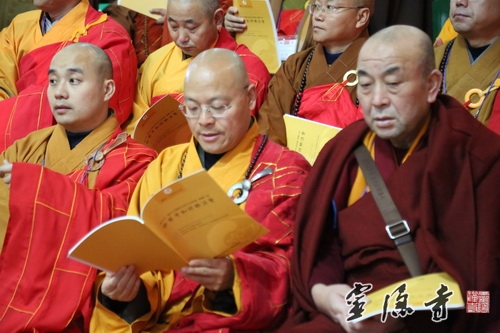
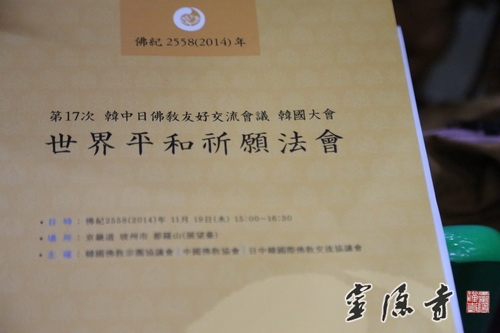
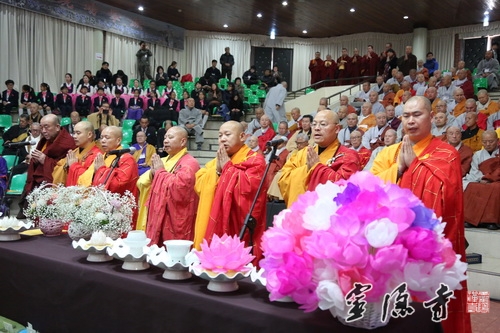
The World Peace Prayer Ceremony
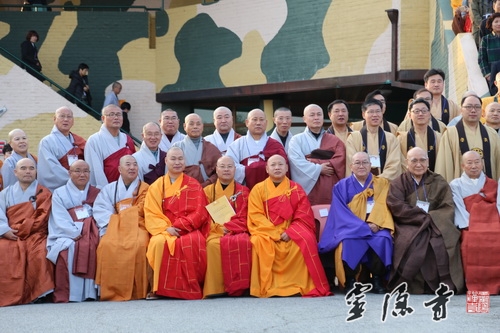
A group photo